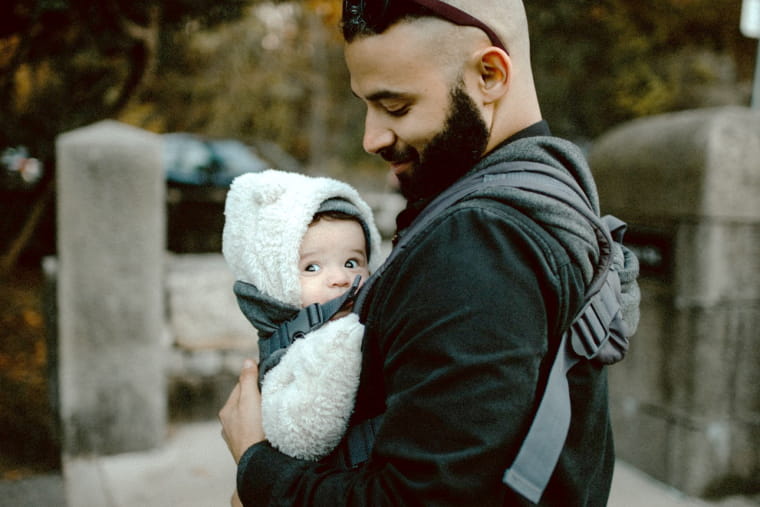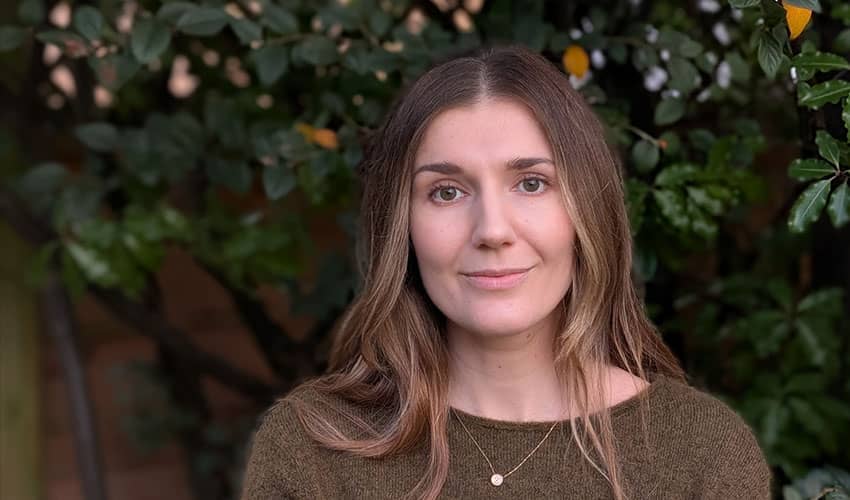Study to assess impact of national scheme to reduce head trauma injuries in babies

A national programme introduced to reduce rates of abusive head trauma in babies will be assessed as part of a new research study.
The ICON programme has been introduced in many NHS and other settings across England since 2018, including GP surgeries, maternity units and health visiting. The programme aims to cut the case numbers of abusive head trauma, sometimes referred to as ‘shaken baby’ syndrome.
ICON offers coping strategies, advice and support for parents and carers of crying babies under a year old.
ICON is made up of four simple messages given to families by healthcare professionals on up to five occasions in the baby’s early life: I – Infant crying is normal; C – Comforting methods can help; O – It’s ok to walk away; N – Never, ever shake a baby.
ICON also has an active social media and public health campaign to reach dads and male caregivers who may not be present during other medical touchpoints, as it is important for both mums and dads to receive the ICON messaging.
The new study, led by Dr Mark Lyttle (UWE Bristol) in collaboration with the University of Bristol and the National Institute for Health and Care Applied Research Collaboration West (NIHR ARC West) and sponsored by University Hospitals Bristol and Weston NHS Foundation Trust, will now evaluate the effectiveness of this programme. The study is funded by the National Institute for Health and Care Research (NIHR) Policy Research Programme.
The study will investigate whether infant head trauma occurs less frequently since the ICON programme was rolled out. It will gather the views of managers, health care providers, and parents and carers about the programme.
The study aims to assess the effectiveness of the programme in reducing the incidence of abusive head trauma and identify barriers and facilitators to its implementation and reach.
Dr Mark Lyttle said: “Evaluating the potential impact of the ICON programme at this stage of its growth is vital. Understanding whether this is beneficial, and which elements are most useful, will help policy makers make any recommendations on its use or improvements.”
Brain trauma, caused when the baby is hit or shaken, is the most common severe injury in babies. This form of abuse affects around 35 in 100,000 babies and is almost completely preventable. It can lead to lifelong learning, visual and hearing disabilities, and in about 20 per cent of cases, the baby dies.
Abusive head trauma is most common around the age when babies cry the most, a stressful time for the adults who care for them. Whilst it is not always possible to reduce how much a baby cries, it is possible to help parents and carers cope.
Research suggested that these brain injuries could be prevented with clear education and support messages for families about normal crying, especially if given on several occasions. Using this evidence, ICON was developed and has been growing in use. Since being commissioned in 2018, ICON is now used in 44 of 54 regions across England.
Dr Julie Brose, Senior Research Associate with the University of Bristol and NIHR ARC West, is responsible for recruiting parents to the study. She said: “A crying baby can be one of the most stressful things new parents have to deal with. We would like to hear directly from new parents and health care professionals to understand how parents cope with a crying baby and the impact of the ICON programme. This can help us understand how to best support new parents during this new season of life.”
If you would like to be part of this study, either as a parent, caregiver or healthcare provider, please contact Dr Julie Brose on 07393 762706 or julie.brose@bristol.ac.uk.
Related news

16 February 2026
UWE Bristol researchers awarded grant to explore impact of asset recovery on offenders
UWE Bristol academics have been awarded funding to explore of the impact of asset recovery on deterring offender behaviour and disrupting crime networks.

10 February 2026
Work by UWE Bristol lecturer features in Government’s National Cancer Plan
Work by a UWE Bristol academic has been included in the Government’s National Cancer Plan.

23 January 2026
On-demand minibus services beneficial in rural areas but face financial challenges, trials suggest
Trials of ‘demand responsive transport’ minibus services boosted connectivity for people in rural and suburban areas, according to a new report produced by UWE Bristol researchers.

18 December 2025
UWE Bristol professor appointed National Institute for Health and Care Excellence CEO
Jonathan Benger CBE, Professor of Emergency Care at UWE Bristol, has been appointed as the new chief executive officer of the National Institute for Health and Care Excellence (NICE).

17 December 2025
Findings revealed from first UK study into experiences of mothers who are survivors of rape pregnancy
UWE Bristol academics have revealed the findings of the first UK-based study of the experiences of mothers who are survivors of rape pregnancy.

11 December 2025
Social media influencer work is far more demanding than it looks, research finds
A study exploring the mental health impacts of social media influencer work has revealed that life online is far more demanding than it appears.

25 November 2025
UWE Bristol experts join film Q&A exploring music and melodrama
Academics will take part in the Cary Comes Home Festival, with a post-screening Q&A exploring music, melodrama and emotional storytelling in classic cinema.

17 November 2025
Urgent reform needed to support ambulance-delivered end of life care, study finds
More than three quarters (78 per cent) of paramedics sometimes fear doing the wrong thing when caring for people in the last year of life, new research has found.

13 November 2025
Bristol’s screen industry experiences “boom-and-bust cycle” after post-pandemic recovery, new research from UWE Bristol finds
New research from UWE Bristol provides detailed insight into Bristol's screen sector.

13 November 2025
New AI research to revolutionise animal welfare
A UWE Bristol research project will combine behavioural science and AI to create technology that understands not only what animals do, but how they feel.

10 November 2025
Lessons from Low Traffic Neighbourhoods will drive better public engagement, study finds
Lessons from Low Traffic Neighbourhoods have informed a new toolkit to improve engagement with the public on challenging local street issues.

06 November 2025
First-of-its-kind study aims to help more people spend their final days at home
A new study will explore how architectural design could support end-of-life care in domestic settings.






